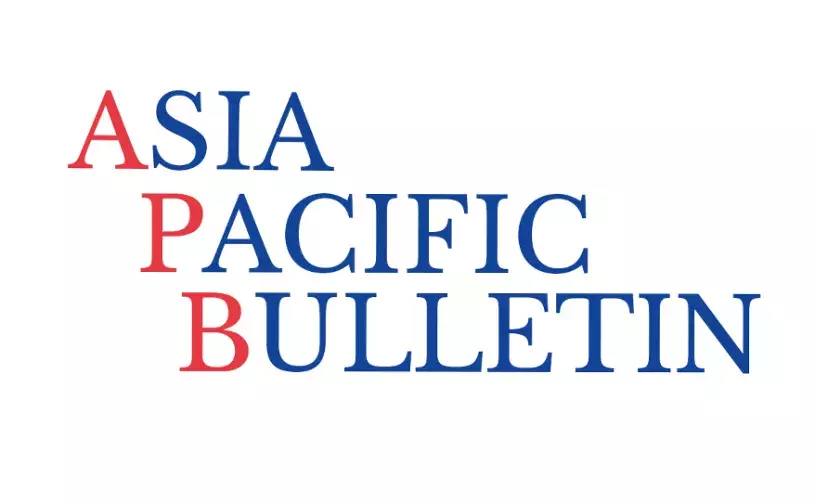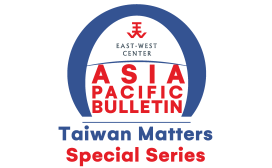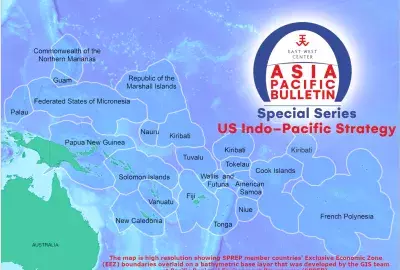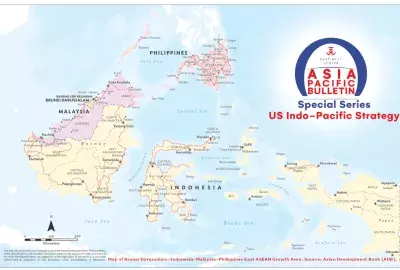Error message


|
Stephen Su, Senior Vice President and General Director of the Industrial Technology Research Institute (ITRI) of Taiwan, explains that the "United States and Taiwan can work closely together to develop resilient industry ecochains for key industries such as semiconductors, telecommunications, automotive, biotech, machinery, etc." |
“A resilient supply chain is defined by its capacity for resistance and recovery. That means having the capability to resist or even avoid the impact of a supply chain disruption—and the ability to quickly recover from a disruption,” according to SAP. Over the last few years, “global supply chain restructuring for resilience and security” has become a key focus for many countries. There are five key factors underlying this global trend:
- Revitalizing the domestic economy and job opportunities has become an important policy objective for many countries to re-shore manufacturing supply chains.
- The COVID-19 pandemic continues to take its toll today and heightens the need for supply chain responsiveness to global disasters with health risk management for medical supplies and pharmaceuticals.
- The US-China trade and technology war will divide the global technology manufacturing and cooperation ecosystem into separate alliances of supply chains for a sustained period of time.
- The semiconductor chip shortage, which caused major supply disruptions for the automotive industry, prompted many countries to adopt long-term strategies for supply chain autonomy in the production of critical components.
- Regional geopolitical tensions, such as the Russia-Ukraine war, have underscored the need to secure supply chains against human-made disruptions via diversification.
According to research by ITRI IEK Consulting, global supply chains need to transform into resilient industry ecochains. To accomplish this transformation, the ecosystem of a supply chain must consist of six high-value elements: high agility manufacturing, high innovation collaboration, high local value-add, high cyber-physical security, high sustainability environment, and high trust partnership. The United States and Taiwan can work closely together to develop resilient industry ecochains for key industries such as semiconductors, telecommunications, automotive, biotech, machinery, etc.
The Anatomy of US-Taiwan Ecochains
High Agility Manufacturing. Resilience in manufacturing supply chains requires high agility in manufacturing systems to support fast responses and recovery for managing uncertainties from market dynamics and major disruptions from pandemics or wars.
During the pandemic period, Taiwan was fast in setting up manufacturing lines for face masks, while the United States accelerated the development of vaccines. Both helped each other and global partners by having very agile manufacturing management. In the future, similar manufacturing agility will be required for developing resilient industry ecochains in industries with high consumer customization and large supply fluctuations (e.g., ICT products and personalized healthcare).
High Innovation Collaboration. In order to maintain global competitiveness, an ecochain sustains collaboration among its key partners to maximize innovation in technology and applications. Furthermore, this collaboration requires cultivating circulated talent pools from all partnering countries in the ecochain.
For example, a US-Taiwan semiconductor ecochain would involve high innovation collaboration in many areas. The United States has strengths in semiconductor material science, advanced computing architecture, manufacturing and testing equipment, and recruiting global talent. Taiwan possesses complementary strengths in foundry and packaging manufacturing, Integrated Circuit (IC) design, application engineering, and total manufacturing cost management. The United States and Taiwan are well-positioned to collaborate for new breakthroughs in quantum computing, heterogenous IC packaging, and power electronics, etc.
High Local Value-add. The manufacturing industry will move toward a global footprint of decentralized manufacturing in multiple countries to create higher value-add for host countries in the form of increased industry revenues, greater employment opportunities, and improved logistics. However, while large enterprises can independently adopt decentralized manufacturing strategies, small and medium companies will need to work with global partners to deliver a seamless product supply network.
The manufacturing landscape of Taiwan consists of some large enterprises, which have a global manufacturing footprint, and many small and medium companies whose manufacturing sites are concentrated in a few select countries. Both types of companies have supported globally recognized US brands through contract manufacturing, in both original equipment manufacturing and original design manufacturing. For many industries, including electronic and autonomous vehicles (EV/AV) and biotech, including pharmaceuticals and medical equipment/devices, both the United States and Taiwan have complementary value-add manufacturing and brand servicing for domestic and emerging overseas markets.
High Cyber-physical Security. A resilient industry ecochain requires high security for identifying, analyzing and mitigating risks against both cyber-attacks—ID theft, malware, piracy, backdoor access, etc.—and physical threats—business espionage, facility damage, terrorism, etc.—which can potentially cause major disruptions in operations. Since a significant amount of sensitive data will be shared in an ecochain, it is vitally important to adopt good risk management principles and systematic defense strategies for overall supply chain security.
Ecochains in industries like semiconductor manufacturing, mobile and satellite communications, data center operations, will require high supply chain security. As the United States is much more experienced in designing software systems to guard against security breaches, and Taiwan has strengths in hardware design and edge computing applications, both sides could complement each other for ensuring high ecochain security.
High Sustainability Environment. The goal of “2050 Net Zero Emissions” has become a common objective for manufacturing companies seeking to comply with the European Union's soon-to-be enacted carbon border adjustment mechanism (CBAM), which will levy carbon taxes starting in 2026. Even though CBAM will be a challenge for many exporters, it also presents abundant opportunities for new science and technology breakthroughs, business models, and measure deployments.
High Trust Partnership. A high degree of trust between partners is strategically important and a key component of a resilient industry ecochain. With increasing geopolitical tensions, only like-minded partners with shared values on open innovation, fair market competition, respect on intellectual property, and open democratic societies can foster a long-term ecochain relationship.
Due to the long history of Taiwan-US business relations, many Taiwanese companies have been trusted partners with their US customers and suppliers for many years. These enduring business ties persist in a wide range of sectors, including electronic products, semiconductors, machinery, and the manufacture of many other products. In the future, the high level of trust between US and Taiwanese entities will expedite the development of Taiwan-US ecochains for telecommunications, space, autonomous machines, and other sensitive industries.
Conclusion
In summation, the United States and Taiwan are poised to transform their supply chains into resilient industry ecochains as the two markets have already established a network of like-minded supply partners that share values and a high degree of trust. The ecochains developed on this foundation will bring economic, societal and environmental benefits to both locales.

|
Stephen Su, Senior Vice President and General Director of the Industrial Technology Research Institute (ITRI) of Taiwan, explains that the "United States and Taiwan can work closely together to develop resilient industry ecochains for key industries such as semiconductors, telecommunications, automotive, biotech, machinery, etc." |
“A resilient supply chain is defined by its capacity for resistance and recovery. That means having the capability to resist or even avoid the impact of a supply chain disruption—and the ability to quickly recover from a disruption,” according to SAP. Over the last few years, “global supply chain restructuring for resilience and security” has become a key focus for many countries. There are five key factors underlying this global trend:
- Revitalizing the domestic economy and job opportunities has become an important policy objective for many countries to re-shore manufacturing supply chains.
- The COVID-19 pandemic continues to take its toll today and heightens the need for supply chain responsiveness to global disasters with health risk management for medical supplies and pharmaceuticals.
- The US-China trade and technology war will divide the global technology manufacturing and cooperation ecosystem into separate alliances of supply chains for a sustained period of time.
- The semiconductor chip shortage, which caused major supply disruptions for the automotive industry, prompted many countries to adopt long-term strategies for supply chain autonomy in the production of critical components.
- Regional geopolitical tensions, such as the Russia-Ukraine war, have underscored the need to secure supply chains against human-made disruptions via diversification.
According to research by ITRI IEK Consulting, global supply chains need to transform into resilient industry ecochains. To accomplish this transformation, the ecosystem of a supply chain must consist of six high-value elements: high agility manufacturing, high innovation collaboration, high local value-add, high cyber-physical security, high sustainability environment, and high trust partnership. The United States and Taiwan can work closely together to develop resilient industry ecochains for key industries such as semiconductors, telecommunications, automotive, biotech, machinery, etc.
The Anatomy of US-Taiwan Ecochains
High Agility Manufacturing. Resilience in manufacturing supply chains requires high agility in manufacturing systems to support fast responses and recovery for managing uncertainties from market dynamics and major disruptions from pandemics or wars.
During the pandemic period, Taiwan was fast in setting up manufacturing lines for face masks, while the United States accelerated the development of vaccines. Both helped each other and global partners by having very agile manufacturing management. In the future, similar manufacturing agility will be required for developing resilient industry ecochains in industries with high consumer customization and large supply fluctuations (e.g., ICT products and personalized healthcare).
High Innovation Collaboration. In order to maintain global competitiveness, an ecochain sustains collaboration among its key partners to maximize innovation in technology and applications. Furthermore, this collaboration requires cultivating circulated talent pools from all partnering countries in the ecochain.
For example, a US-Taiwan semiconductor ecochain would involve high innovation collaboration in many areas. The United States has strengths in semiconductor material science, advanced computing architecture, manufacturing and testing equipment, and recruiting global talent. Taiwan possesses complementary strengths in foundry and packaging manufacturing, Integrated Circuit (IC) design, application engineering, and total manufacturing cost management. The United States and Taiwan are well-positioned to collaborate for new breakthroughs in quantum computing, heterogenous IC packaging, and power electronics, etc.
High Local Value-add. The manufacturing industry will move toward a global footprint of decentralized manufacturing in multiple countries to create higher value-add for host countries in the form of increased industry revenues, greater employment opportunities, and improved logistics. However, while large enterprises can independently adopt decentralized manufacturing strategies, small and medium companies will need to work with global partners to deliver a seamless product supply network.
The manufacturing landscape of Taiwan consists of some large enterprises, which have a global manufacturing footprint, and many small and medium companies whose manufacturing sites are concentrated in a few select countries. Both types of companies have supported globally recognized US brands through contract manufacturing, in both original equipment manufacturing and original design manufacturing. For many industries, including electronic and autonomous vehicles (EV/AV) and biotech, including pharmaceuticals and medical equipment/devices, both the United States and Taiwan have complementary value-add manufacturing and brand servicing for domestic and emerging overseas markets.
High Cyber-physical Security. A resilient industry ecochain requires high security for identifying, analyzing and mitigating risks against both cyber-attacks—ID theft, malware, piracy, backdoor access, etc.—and physical threats—business espionage, facility damage, terrorism, etc.—which can potentially cause major disruptions in operations. Since a significant amount of sensitive data will be shared in an ecochain, it is vitally important to adopt good risk management principles and systematic defense strategies for overall supply chain security.
Ecochains in industries like semiconductor manufacturing, mobile and satellite communications, data center operations, will require high supply chain security. As the United States is much more experienced in designing software systems to guard against security breaches, and Taiwan has strengths in hardware design and edge computing applications, both sides could complement each other for ensuring high ecochain security.
High Sustainability Environment. The goal of “2050 Net Zero Emissions” has become a common objective for manufacturing companies seeking to comply with the European Union's soon-to-be enacted carbon border adjustment mechanism (CBAM), which will levy carbon taxes starting in 2026. Even though CBAM will be a challenge for many exporters, it also presents abundant opportunities for new science and technology breakthroughs, business models, and measure deployments.
High Trust Partnership. A high degree of trust between partners is strategically important and a key component of a resilient industry ecochain. With increasing geopolitical tensions, only like-minded partners with shared values on open innovation, fair market competition, respect on intellectual property, and open democratic societies can foster a long-term ecochain relationship.
Due to the long history of Taiwan-US business relations, many Taiwanese companies have been trusted partners with their US customers and suppliers for many years. These enduring business ties persist in a wide range of sectors, including electronic products, semiconductors, machinery, and the manufacture of many other products. In the future, the high level of trust between US and Taiwanese entities will expedite the development of Taiwan-US ecochains for telecommunications, space, autonomous machines, and other sensitive industries.
Conclusion
In summation, the United States and Taiwan are poised to transform their supply chains into resilient industry ecochains as the two markets have already established a network of like-minded supply partners that share values and a high degree of trust. The ecochains developed on this foundation will bring economic, societal and environmental benefits to both locales.







